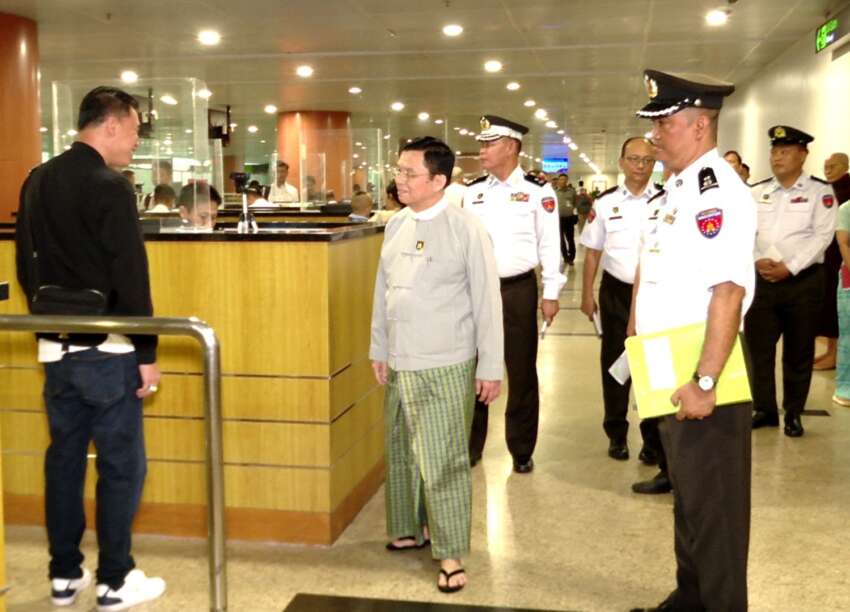
The military council has indefinitely suspended foreign employment permissions for basic workers due to low rates of Myanmar nationals returning from abroad, according to the Ministry of Labor in Naypyidaw. Currently, only skilled workers and those going abroad under government-to-government (G to G) arrangements are being permitted after screening, sources from the ministry reported.
All foreign worker deployments were temporarily suspended starting February 14. Subsequently, the Labor Ministry has been screening and approving only skilled workers and those under G to G arrangements. Notably, the issuance of Overseas Worker Identification Cards (OWIC), which is crucial for foreign employment, has been temporarily suspended for basic workers. The ministry continues to issue OWIC cards only to skilled workers and those under G to G programs after careful screening.
This restriction on foreign worker deployments came after Military Council leader Min Aung Hlaing appointed Chit Swe, former Myanmar Ambassador to Thailand, as Labor Minister on January 31. Currently, only skilled workers bound for Japan and Russia, and workers under G to G arrangements for Laos are being personally screened and approved by the Labor Minister. The military council has cited several reasons for these restrictions, including low foreign currency earnings from overseas workers, minimal rates of return migration, resulting in human resource losses and labor shortages within the country.
The military council claims these restrictions are necessary due to various challenges they face, including decreased foreign currency collection from overseas Myanmar workers and low rates of return migration, which they say has led to human resource losses and labor shortages. Min Aung Hlaing has publicly stated that Myanmar’s population decline is due to increased emigration, various causes of death, and declining birth rates. The military council’s decision to restrict foreign employment appears to be an attempt to address these issues, though it significantly impacts the livelihood opportunities of basic workers seeking employment abroad.



